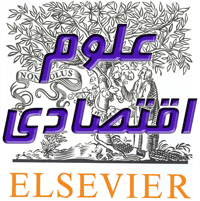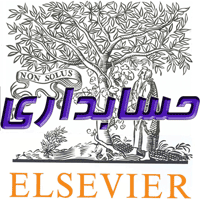دانلود مقاله isi بررسی روابط بین فرهنگ، نوآوری و عملکرد سازمانی
دانلود رایگان مقاله الزویر در مورد بررسی روابط بین فرهنگ، نوآوری و عملکرد سازمانی (کلیک کنید)
توضیحات :
وبسایت مکاله اقدام به ارائه پروژه ی ساینس دایرکت با فرمت pdf، از انتشارات الزویر برای رشته علوم اقتصادی، و با عنوان بررسی روابط بین فرهنگ، نوآوری و عملکرد سازمانی نموده است.
مشخصات این مقاله :
عنوان مقاله :
Organizational culture, innovation, and performance: A test of Schein’s model
ترجمه فارسی عنوان :
بررسی روابط بین فرهنگ، نوآوری و عملکرد سازمانی : آزمایش مدل اسچین
سال انتشار : 2013
متعلق به مجله یا ژورنال : نشریه پژوهش های کسب و کار – Journal of Business Research
فرمت: PDF
تعداد صفحات: 13
شماره پروژه: 5100
کلمات کلیدی :
Organizational culture,Innovation,Professional service firms,Survey research,Structural equations modeling
فرهنگ سازمانی، ابداع، شرکت های خدمات حرفه ای، بررسی پژوهش، مدل سازی معادلات ساختاری
چکیده :
Abstract
Innovation is the key to organizational survival and therefore the study of processes that support innovation should be of interest to researchers and practitioners alike. Schein’smulti-layeredmodel of organizational culture offers a useful framework for thinking about processes that foster innovation. A defining characteristic of the model is the subtle but important distinctions between the varied “layers” of organizational culture (i.e., values and norms, artifacts and behaviors). The basic assumption of this study is that Schein’s model offers a tractable explanation of cultural processes that support organizational innovation, especially in service firms. Despite the intuitive appeal and practical value of Schein’s conceptual framework, empirical research in relation to the model is limited. This paper develops a rationale for an empirical model based on Schein’s conceptual model; the study reports a test of an empirical model. Data collected from approximately 100 principals of law firms provides a suitable empirical context for a test of the model. The findings generally support the hypothesized relationships. A key result is how layers of organizational culture, particularly norms, artifacts, and innovative behaviors, partially mediate the effects of values that support innovation on measures of firm performance. The findings have implications for theory and practice, especially in relation to building an organizational culture within professional service firms that fosters innovative behavior.
مقدمه این مقاله :
Introduction
Following theworst global economic crisis experienced in fifty years,a report fromthe Organisation for Economic Co-operation and Development (OECD, 2010) highlights the potential of innovation for long-term economic growth. Innovation is a key driver of economic development and plays a crucial role in competition at both the national and firm levels (Cefis & Marsili, 2006; Tellis, Prabhu, & Chandy, 2009). Given the complex and dynamic conditions in which organizations compete today, the need for organizations to innovate continually has never been greater (Gumusluoglu & Ilsev, 2009; Tellis et al., 2009). Prior literature proposes a positive link between innovation and a range of desired performance outcomes (e.g., Garcia-Morales, Matías-Reche, & Verdu-Jover, 2011; Han, Kim, & Srivastava, 1998).Consequently, empirical interest continues to increase understanding of paths to innovation. Not surprisingly, much of this research has focused on manufacturing firms. Few studies document processes that support innovation in service firms that deliver high “value added” services, by comparison. Organizational culture as the key to fostering processes that support innovation is one speculation (Khazanchi, Lewis, & Boyer, 2007; Tellis et al., 2009); this perspectivemay be relevant especially in the context of professional service firms. The concept of organizational culture originates in cultural anthropology and is popularwithin the organizational behavior, management, and marketing literatures (e.g., Gregory, Harris, Armenakis, & Shook, 2009; Homburg & Pflesser, 2000; Schein, 1992). Organizational culture refers to the values and beliefs that provide norms of expected behaviors that employees might follow (Schein, 1992). Schein (1992) considers organizational culture as a social force that is largely invisible yet very powerful. Empirical evidence suggests that organizational culture significantly influences market-oriented behaviors, and market and financial performance (Homburg & Pflesser, 2000), employee attitudes and organizational effectiveness (Gregory et al., 2009), and has a greater contribution to knowledge management and organizational effectiveness than organizational strategy and structure (Zheng, Yang, & McLean, 2010). An organization’s culture strongly influences employees’ behaviors beyond formal control systems, procedures, and authority (O’Reilly, Chatman, & Caldwell, 1991). As such, organizational culture is a powerful means to elicit desired organizational outcomes.
توجه :
– این مقاله به صورت کامل و با فرمت پی دی اف آماده خرید اینترنتی و دانلود آنی میباشد.
توضیحات بیشتر در مورد پروژه :
در این مقاله خواهید خواند که نوآوری کلید بقاء سازمان می باشد در نتیجه مطالعه فرآیند هایی که از نوآوری حمایت می کنند باید مورد توجه محققان و پژوهشگران به طور یکسان قرار گیرد. یافته های تئوری و عملی نشان می دهد که در رابطه با ساخت یک فرهنگ سازمانی در شرکت های خدماتی پرورش رفتار نواورانه سهمی به سزایی دارد.
دانلود رایگان مقاله الزویر در مورد بررسی روابط بین فرهنگ، نوآوری و عملکرد سازمانی (کلیک کنید)


